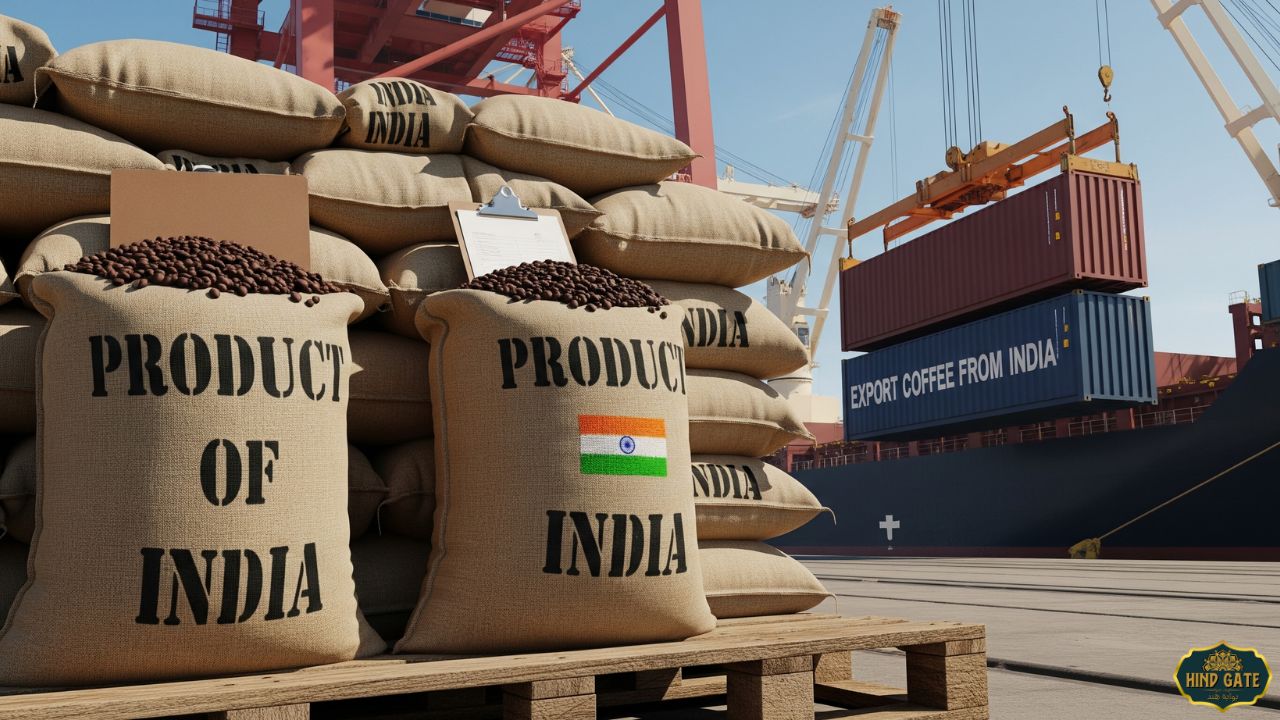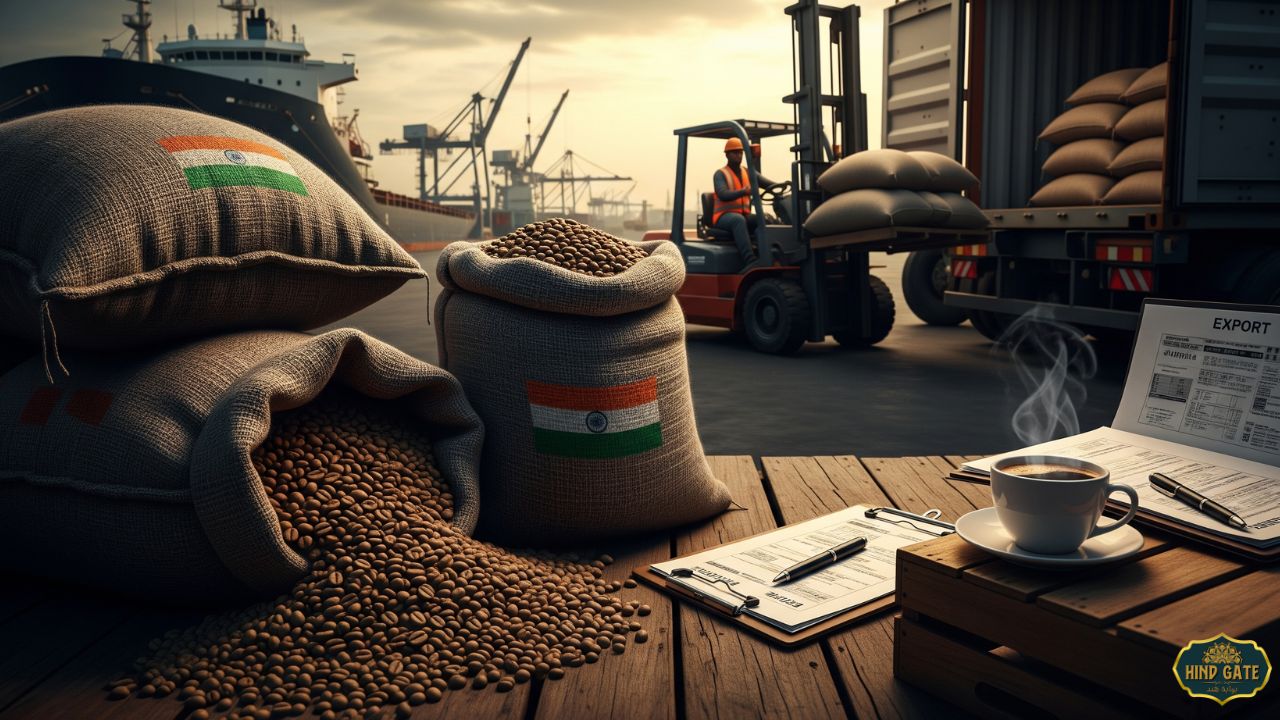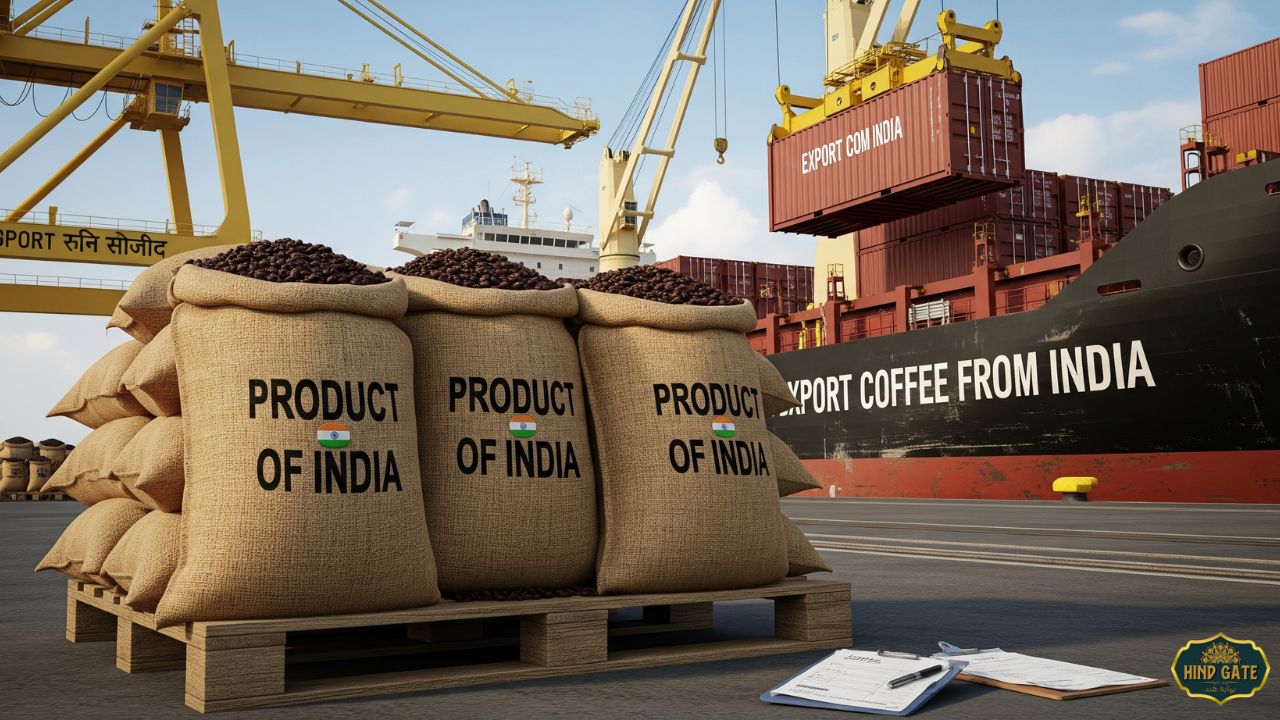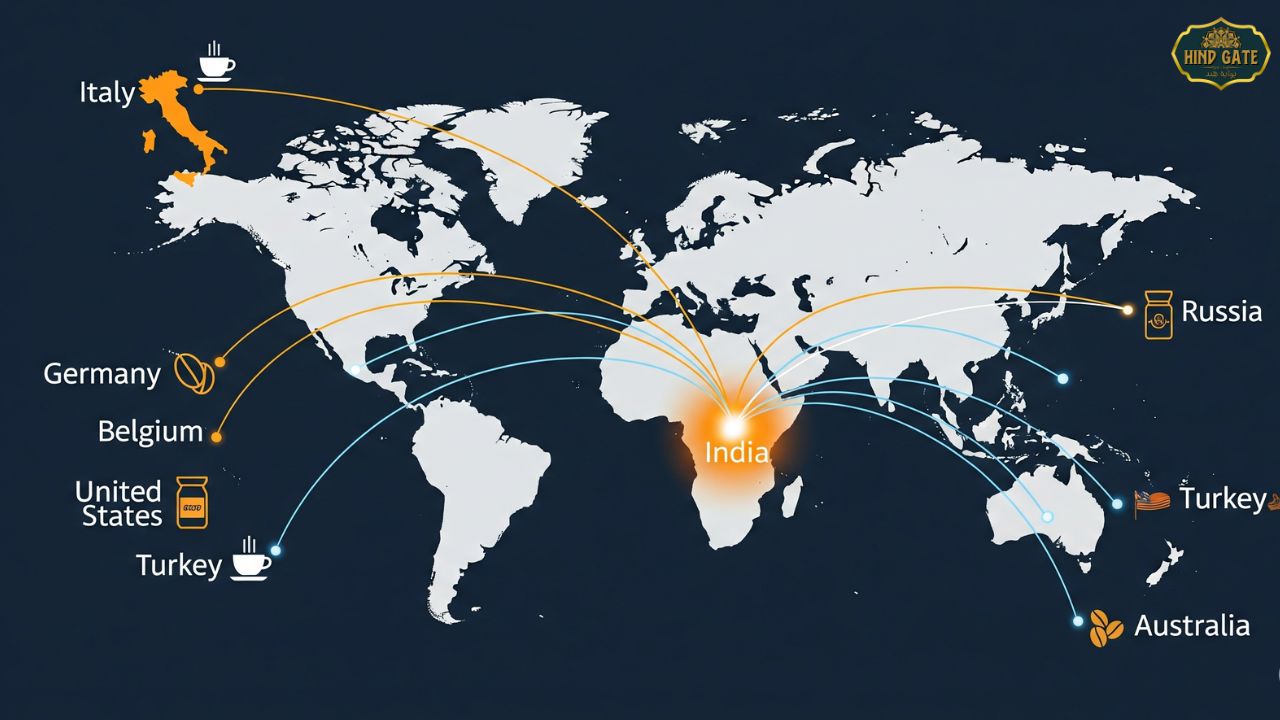
How to Export Coffee From India? A Complete Guide
India is one of the leading producers and exporters of high-quality coffee. Whether you are a new entrepreneur or an agribusiness looking to expand internationally, exporting coffee from India offers lucrative opportunities. In this guide, we’ll take you through the complete step-by-step process, legal requirements, and best practices to successfully export Indian coffee. This blog will also help you understand related export industries, such as how to export tea from India and how to export pulses from India, both of which are closely aligned with the coffee sector.
Introduction
India ranks among the top 10 coffee-producing countries in the world, known for its shade-grown Arabica and Robusta beans, especially from regions like Karnataka, Kerala, and Tamil Nadu. Indian coffee has gained a reputation in international markets for its rich aroma, low acidity, and distinctive flavor.
Increasing global demand for sustainable and specialty coffees makes now the perfect time to begin your export journey. Furthermore, this guide will help you understand the entire coffee export process in India, including legal compliance, finding buyers, and handling logistics.
Types of Coffee Exported from India
India offers a wide variety of coffee to international markets. Here are the major types exported:
| Type of Coffee | Description | Export Ready |
|---|---|---|
| Arabica Coffee | Mild flavor, aromatic, grown mainly in Karnataka | Yes |
| Robusta Coffee | Strong and bitter, high caffeine content, widely grown in Kerala | Yes |
| Green Coffee Beans | Unroasted beans preferred by international roasters | Yes |
| Instant Coffee | Processed and packaged coffee exported in bulk | Yes |
| Specialty Coffee | Includes Monsooned Malabar and organic varieties for premium export markets | Yes |
In addition, this range satisfies diverse international demands, further enhancing the reputation of Indian coffee exporters worldwide.

Step-by-Step Coffee Export Process From India
1. Register with the Coffee Board of India
To legally export coffee, you must register with the Coffee Board of India and obtain the Registration-Cum-Membership Certificate (RCMC).
Steps:
- Visit www.coffeeboard.gov.in.
- Apply online for RCMC
- Upload business registration documents
- Pay the applicable fee
You also need a Certificate of Origin for each export shipment.
2. Obtain Necessary Licenses
To begin your journey in how to start a coffee export business, secure the following licenses:
- Import Export Code (IEC) from DGFT
- FSSAI License for food-grade handling
- GST Registration
- PAN Card of the business owner/entity
These are vital to establish yourself legally as one of the compliant Indian coffee exporters.
3. Ensure Quality and Grading
Your coffee must meet international quality standards. The Coffee Board provides grading services based on:
- Bean size and moisture
- Flavor and aroma profile
- Defect count
Having your coffee graded enhances credibility, pricing, and access to premium markets.
4. Packaging and Labeling Standards
Proper packaging preserves freshness and aligns with export norms:
- Use vacuum-sealed or food-grade bags
- Label with product name, origin, net weight, expiry, and batch info
- Follow the destination country’s labeling requirements
5. Finding Buyers for Indian Coffee
Effective buyer sourcing includes:
- B2B platforms like Alibaba, Tradekey
- Coffee trade expos (World of Coffee, SCAA Expo)
- Digital marketing through SEO-optimized blogs
- Export partnerships (e.g., with Hind Gate)
Furthermore, competitive pricing and sampling from Arabica coffee exporters build international trust for Arabica coffee exporters and Robusta coffee exporters alike.
6. Logistics and Shipping
Choose a shipping mode based on quantity and urgency:
- Air Freight for small, urgent orders
- Sea Freight for bulk shipments
Key export documents include:
- Commercial Invoice
- Packing List
- Bill of Lading (BL)
- Certificate of Origin
- Phytosanitary Certificate (if needed)
Additionally, it is recommended that you partner with a CHA (Customs House Agent) to ensure smoother customs clearance.
7. Payment Methods and Legal Compliance
Common international payment methods:
- Letter of Credit (LC)
- Advance Payment
- Documentary Collection
Ensure compliance with:
- Indian export tax laws
- Destination country’s food safety regulations
- Foreign exchange policies

Documents Required for Coffee Export From India
Here are the essential documents needed for coffee export documentation:
- Import Export Code (IEC) – from DGFT
- RCMC – from Coffee Board of India
- FSSAI License
- GST Registration Certificate
- PAN Card – business owner/entity
- Commercial Invoice and Packing List
- Bill of Lading / Airway Bill
- Certificate of Origin
- Phytosanitary Certificate (if applicable)
- Insurance Certificate (if insured)
These ensure your compliance as per Indian and international trade laws.

Major Importing Countries of Indian Coffee
India exports coffee to over 45 nations. Here are the top markets:
| Country | Coffee Type in Demand |
|---|---|
| Italy | Robusta, Green Beans |
| Germany | Arabica, Specialty Coffee |
| Russia | Instant Coffee, Robusta |
| Belgium | Green Beans, Specialty |
| United States | Arabica, Roasted Coffee |
| Turkey | Robusta, Instant |
| Australia | Organic and Premium Coffee |
Additionally, these countries prefer both raw and roasted coffee beans, especially Robusta and specialty coffees. This demand is similar to the international appeal seen when businesses export spices from India.

Why Export Coffee with Hind Gate?
Hind Gate is a reputed name in Hind Gate coffee export services, providing:
- Certified sourcing from Indian plantations
- International standard packaging
- End-to-end documentation support (IEC, FSSAI, BL, etc.)
- Global buyer network
- Multi-category exports (tea, coffee, spices)
Contact us today to get started with your first coffee export shipment.
Conclusion
Getting into the export coffee from India business is both rewarding and scalable. With a proper understanding of licensing, documentation, and international standards, you can reach new global markets.
In addition, choosing a partner with experience, such as Hind Gate, makes the process easier and more efficient. Whether you’re dealing in Arabica coffee export, Robusta coffee export, or exploring related sectors like tea and spices, India’s export potential is vast.
Ready to Export Coffee with Confidence?
Get personalized assistance from our coffee export specialists.



